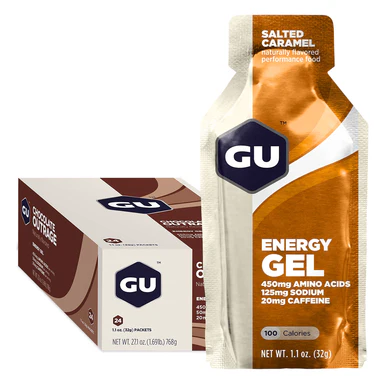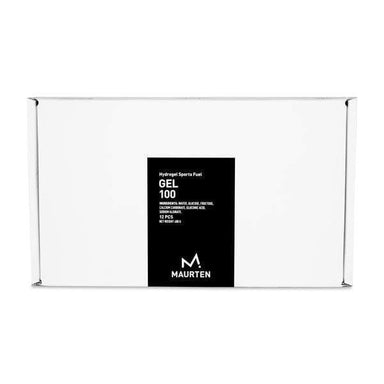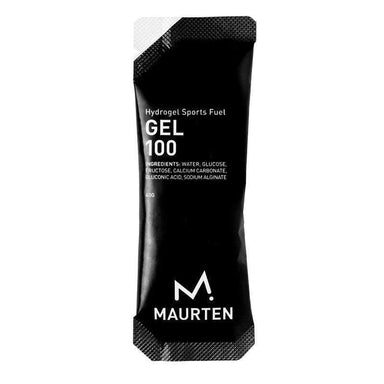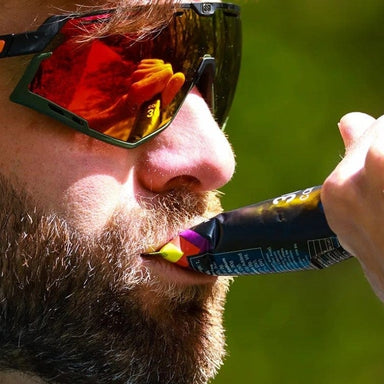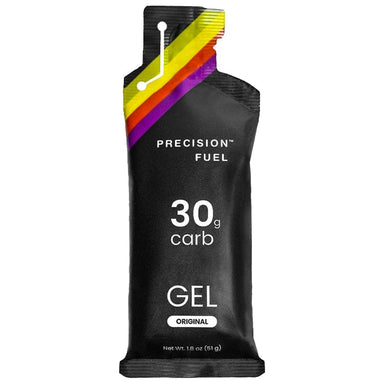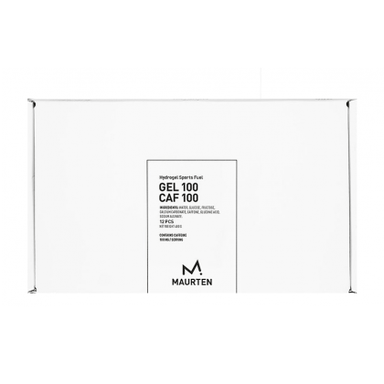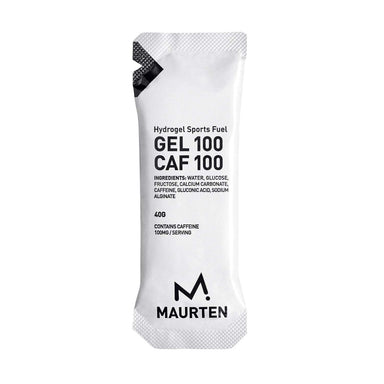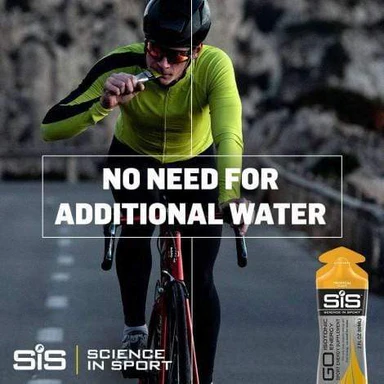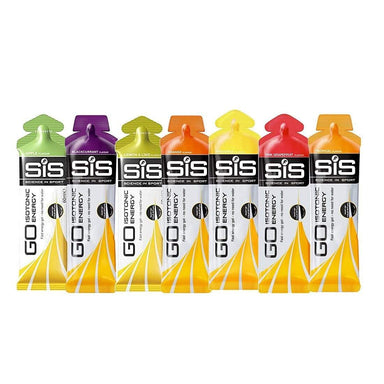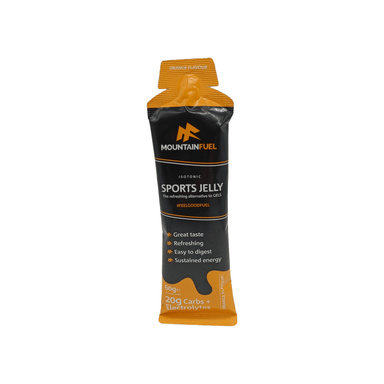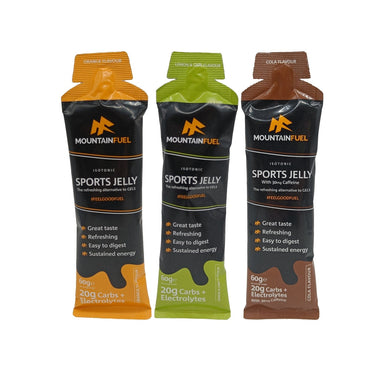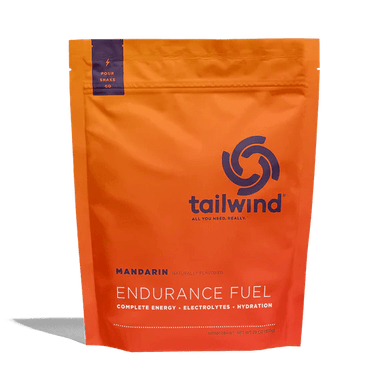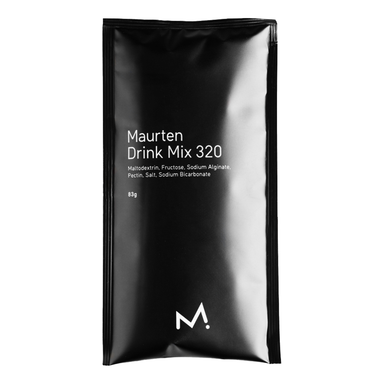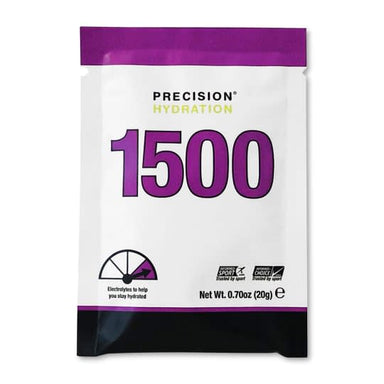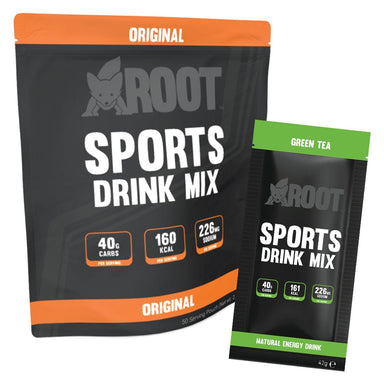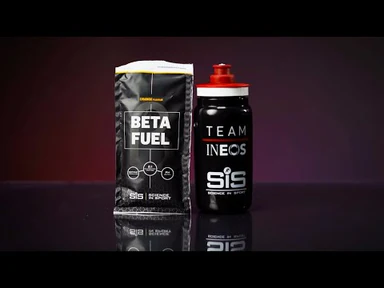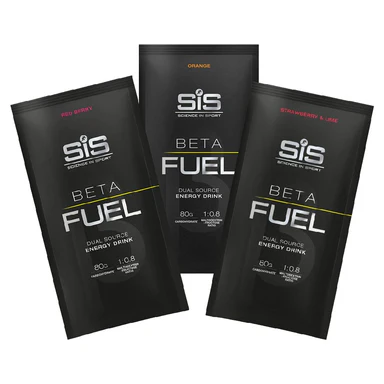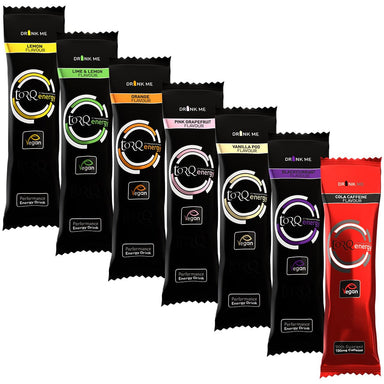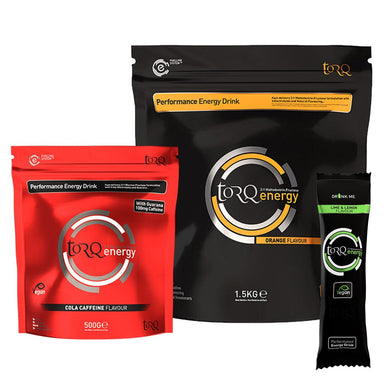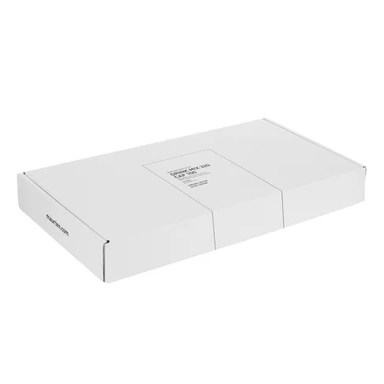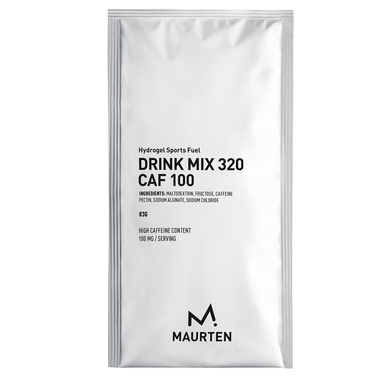Ernährung beim Schwimmen
Die richtige Energieversorgung ist entscheidend für Leistung und Ausdauer, insbesondere bei längeren Einheiten von 60 Minuten oder mehr. Beim Schwimmen greift Ihr Körper auf seine Glykogenspeicher zurück, die als primäre Energiequelle dienen. Ohne ausreichende Glykogenversorgung kann es zu Müdigkeit, verminderter Konzentration und einer Verringerung der Schwimmgeschwindigkeit kommen.
Genauso wie Energiegels und -getränke für Läufer unverzichtbar sind, profitieren auch Schwimmer von ihnen, um ihre Glykogenspeicher effizient aufzufüllen. Energiegels bieten eine konzentrierte Kohlenhydratquelle in praktischer, tragbarer Form – ideal für den schnellen Verzehr während kurzer Pausen. Energiegetränke hingegen liefern Kohlenhydrate in verdünnter Form und ermöglichen so eine stetige Auffüllung während des Schwimmens.
Für optimale Leistung bei längeren Schwimmeinheiten sollten Sie 30–60 Gramm Kohlenhydrate pro Stunde in Form von Energiegels und/oder Getränken zu sich nehmen. Dies gewährleistet eine anhaltende Energieversorgung, die Sie während des gesamten Schwimmens fit hält.
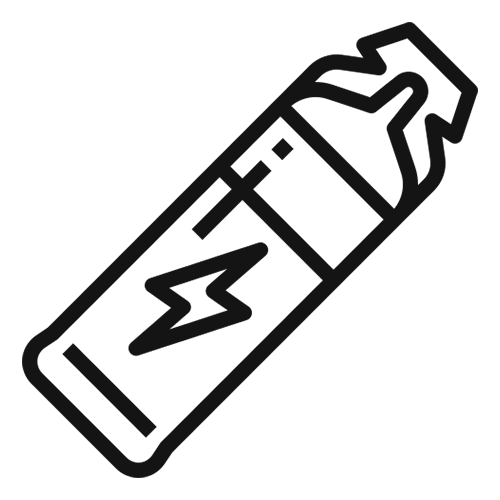
ENERGIE-GELS ZUM SCHWIMMEN
|
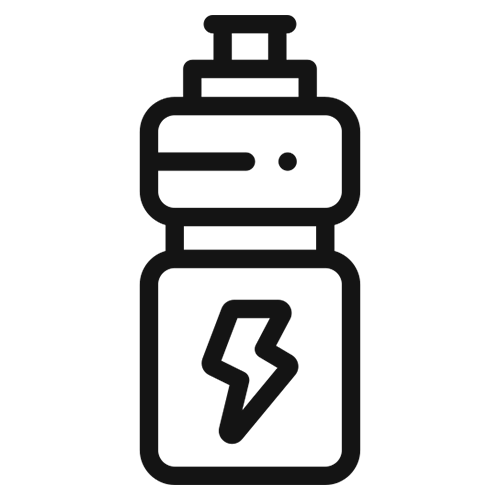
ENERGY-GETRÄNKE ZUM SCHWIMMEN
|

ENERGIERIEGEL ZUM SCHWIMMEN
|

Erholungsgetränke zum Schwimmen
|

HYDRATION ZUM SCHWIMMEN
|
Eine ausreichende Flüssigkeitszufuhr ist für Schwimmer sowohl vor als auch während des Trainings unerlässlich. Achten Sie vor dem Schwimmen auf ausreichend Flüssigkeitszufuhr, indem Sie 2–3 Stunden vor dem Schwimmen bis zu 500 ml Flüssigkeit zu sich nehmen. Bei längeren Schwimmeinheiten sollten Sie alle 20 bis 30 Minuten 100 bis 200 ml Flüssigkeit trinken, um den Flüssigkeitshaushalt aufrechtzuerhalten.
Während Wasser für kürzere Schwimmeinheiten ausreicht, sollten Sie bei Schwimmeinheiten von über 60 Minuten auf hydrierende Getränke zurückgreifen, um die durch Schweiß und Anstrengung verlorenen Elektrolyte wieder aufzufüllen.
Die Erholung nach dem Schwimmen ist für Schwimmer entscheidend, um die Muskelreparatur zu fördern und die Energiespeicher wieder aufzufüllen. Nehmen Sie innerhalb von 30 bis 60 Minuten nach dem Schwimmen eine Kombination aus Proteinen und Kohlenhydraten zu sich, um die Regeneration zu unterstützen. Achten Sie auf ein Verhältnis von 0,3 bis 0,5 Gramm Protein pro Kilogramm Körpergewicht. Praktische Optionen wie Erholungsgetränke oder -riegel können diese wichtige Mischung liefern, Muskelkater lindern und Sie auf nachfolgende Trainingseinheiten vorbereiten.
-
Sporternährung für Anfänger
Nicht jeder ist ein erfahrener Schwimmer. Vielleicht möchten Sie Ihre ersten Schritte zurück in den Sport wagen, sei es Gehen, Laufen, Schwimmen oder Radfahren.
-
Warum ist Ernährung wichtig?
Hatten Sie bei Ihrem wichtigsten Rennen des Jahres schon einmal den berüchtigten „Bonk“? Wir könnten die Lösung für Ihre nächste persönliche Bestleistung sein.
-
Vorteile der Verwendung von Ernährung im Training
Der Nährstoffbedarf eines Schwimmers ist von Person zu Person unterschiedlich und hängt von Faktoren wie Körpergewicht und -zusammensetzung sowie Dauer und Intensität der Aktivität ab.
Ernährung beim Schwimmen: FAQs
Was sollte ich vor dem Schwimmen essen, um mein Training effektiv zu unterstützen?
Vor dem Schwimmen solltest du leicht verdauliche Kohlenhydrate wie Vollkorntoast mit Banane oder Haferflocken zu dir nehmen. Auch eine kleine Menge Protein, wie griechischer Joghurt oder ein Proteinshake, kann dir helfen, dein Energieniveau während des Schwimmens aufrechtzuerhalten.
Ist es in Ordnung, mit leerem Magen zu schwimmen?
Schwimmen auf nüchternen Magen kann zu Müdigkeit und Leistungseinbußen führen. Es wird generell empfohlen, mindestens 1–2 Stunden vor dem Schwimmen eine leichte Mahlzeit oder einen Snack zu sich zu nehmen, um Energie für das Training zu haben.
Wie kann ich beim Schwimmen ausreichend Flüssigkeit zu mir nehmen?
Für optimale Leistung im Wasser ist ausreichende Flüssigkeitszufuhr entscheidend. Trinken Sie vor dem Schwimmen regelmäßig Elektrolytgetränke. Bei längeren Schwimmeinheiten können Sie auch ein Sportgetränk mit Elektrolyten und Kohlenhydraten trinken, um verlorene Flüssigkeit und Mineralien wieder aufzufüllen.
Welche Lebensmittel unterstützen die Muskelregeneration nach dem Schwimmen?
Konzentrieren Sie sich nach dem Schwimmen darauf, die Glykogenspeicher wieder aufzufüllen und Ihre Muskeln mit den notwendigen Nährstoffen für die Regeneration zu versorgen. Achten Sie auf eine ausgewogene Mahlzeit mit Kohlenhydraten und magerem Eiweiß, wie zum Beispiel ein Putensandwich auf Vollkornbrot oder einen Quinoasalat mit gegrilltem Hähnchen.
Gibt es bestimmte Nahrungsmittel, die meine Schwimmleistung verbessern können?
Lebensmittel, die reich an Omega-3-Fettsäuren sind, wie Lachs, Walnüsse und Leinsamen, können die Herz-Kreislauf-Gesundheit unterstützen und die Ausdauer im Wasser verbessern. Darüber hinaus kann der Verzehr von antioxidantienreichem Obst und Gemüse wie Beeren, Spinat und Grünkohl Entzündungen reduzieren und die allgemeine Genesung unterstützen.
Welche Snacks kann ich für einen schnellen Energieschub mit ins Schwimmbad nehmen?
Tragbare, nährstoffreiche Snacks sind ideal, um das Energieniveau während des Schwimmtrainings aufrechtzuerhalten. Packen Sie Dinge wie Studentenfutter, Energieriegel, frisches Obst oder Vollkorncracker mit Nussbutter ein, um sie zwischen den Trainingseinheiten oder in den Pausen zu genießen.
Wie kann ich ein Völlegefühl oder Trägheitsgefühl beim Schwimmen vermeiden?
Um Beschwerden im Wasser vorzubeugen, sollten Sie unmittelbar vor dem Schwimmen auf schwere, fettige Speisen oder große Mahlzeiten verzichten. Greifen Sie stattdessen zu leichteren, leicht verdaulichen Speisen und lassen Sie ausreichend Zeit für die Verdauung, bevor Sie ins Becken gehen.
Gibt es Nahrungsergänzungsmittel, die Schwimmern helfen können?
Eine ausgewogene Ernährung sollte Schwimmer mit den meisten Nährstoffen versorgen, manche profitieren jedoch von der Einnahme bestimmter Vitamine oder Mineralstoffe. Lassen Sie sich von einem Arzt oder Ernährungsberater beraten, um zu klären, ob eine Nahrungsergänzung notwendig ist und welche Optionen für Ihren individuellen Bedarf am besten geeignet sind.


















































































































